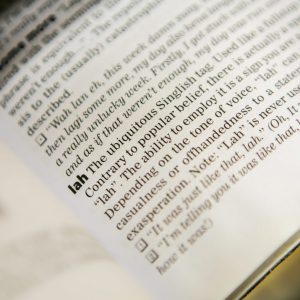The Auditory English Lexicon Project: A multi-talker, multi-region psycholinguistic database of 10,170 spoken words and nonwords
April 25, 2022

In the late 1990s, there were concerns of a decline in Singapore’s standard of English. This was attributed to Singaporeans’ penchant of using Singlish in casual conversation, which is grammatically incorrect and not commonly understood among foreigners. To reverse this problem, the Speak Good English Movement was launched on 29 April 2000 to discourage the use of Singlish and encourage Singaporeans to adopt a universally correct form of English.
‘The Auditory English Lexicon Project: A multi-talker, multi-region psycholinguistic database of 10,170 spoken words and nonwords’ is a project by Associate Professor Winston Goh, Associate Professor Melvin Yap, and Ms Qian Wen Chee (all NUS Department of Psychology). In this psycholinguistic experiment, participants are required to indicate whether the audio word or non-word (pseudowords) that they are introduced to is a legitimate word or a non-word. From there, behavioural data on reaction times and error rates can be collected. Six tokens of each stimulus were recorded (in .wav format) using native speakers of American, British and Singapore English, with one from each gender. The audio was played out to participants to gather data on intelligibility norms and auditory lexical decision accuracies and latencies.
Through the experiments, the team developed a database of 10,170 spoken words and spoken nonwords. It includes a mix of lexico-semantic variables and structural indices for the words and nonwords, as well as participants’ individual difference measures (age, gender, language background, and proficiency). Altogether, the database contains 122,040 sound files and over 4 million behavioural data points – the largest multi-talker database of spoken words and nonwords to date. It is accessible from this website: (https://inetapps.nus.edu.sg/aelp/).
Read the article here.
